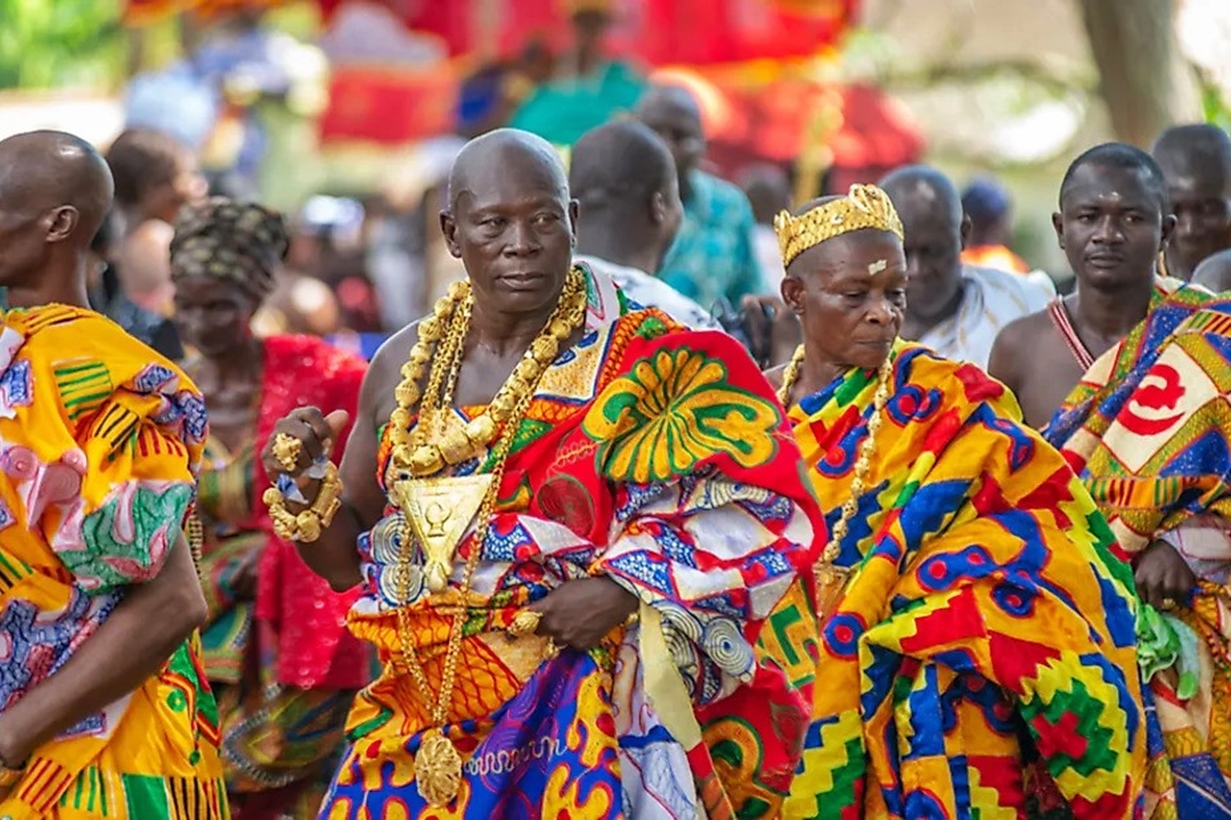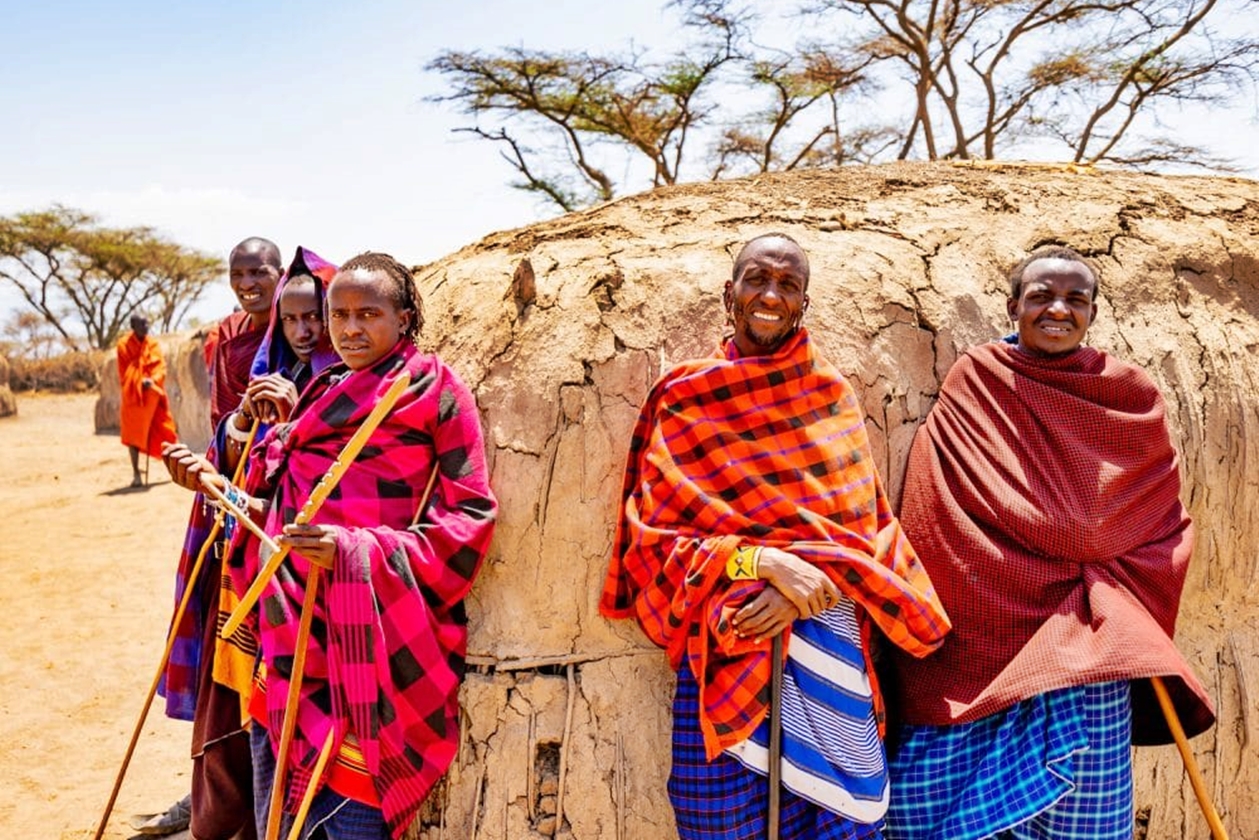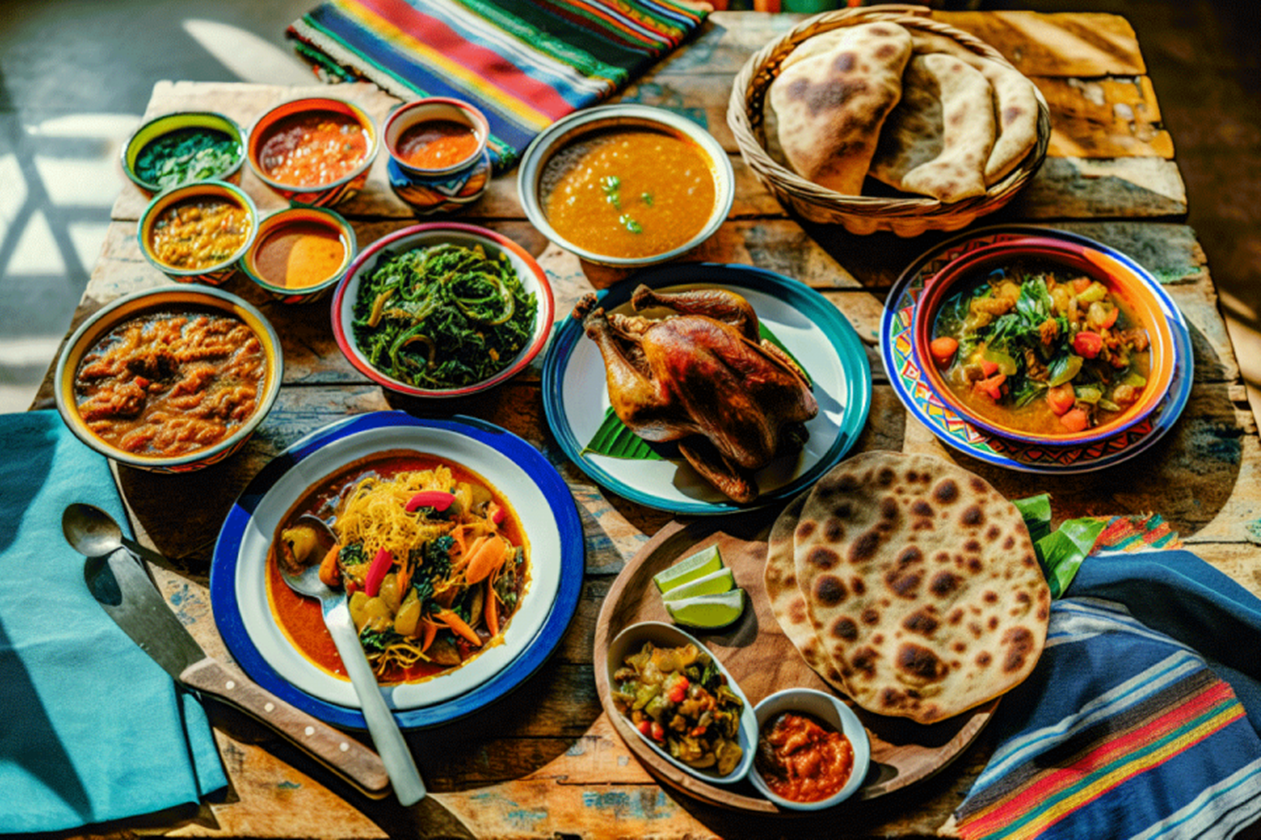Unveiling the Magnificence of Traditional African Attire

Kante Kings in traditional clothing ( Photo: Yaayi / Shutterstock )
Hey there, style mavens and fashionistas! Get ready to embark on a sartorial journey like no other as we dive into the mesmerizing world of traditional African attire. From the vibrant colors to the intricate patterns, African clothing is a celebration of culture, heritage, and sheer elegance. So, grab your virtual passport and let's explore the breathtaking diversity of traditional African fashion!
The Fabric of Identity: Exploring Traditional African Attire
African attire is not just clothing; it's a statement, a reflection of identity, and a symbol of pride. Each garment tells a story, weaving together centuries of tradition and craftsmanship. Let's unravel the rich tapestry of African fashion and discover the hidden gems that lie within.
1. Colors that Captivate
African attire is a riot of colors, with hues ranging from bold and vibrant to earthy and subdued. Every shade carries its own significance, reflecting the cultural heritage and beliefs of the wearer. Whether it's the fiery reds of the Maasai warriors or the royal blues of the Ashanti kings, each color speaks volumes about the wearer's personality and status.
2. Patterns with Purpose
From geometric shapes to abstract motifs, African fabrics are adorned with a dazzling array of patterns that mesmerize the eye and captivate the imagination. Each pattern carries its own symbolism, representing everything from fertility and prosperity to courage and wisdom. Whether it's the intricate kente designs of Ghana or the bold Ankara prints of Nigeria, African patterns are a testament to the ingenuity and creativity of the continent's artisans.
3. Silhouettes that Stun
Traditional African attire encompasses a wide range of silhouettes, from flowing robes and billowing skirts to fitted tunics and tailored suits. Each garment is crafted with precision and care, accentuating the natural beauty of the wearer and enhancing their sense of dignity and grace. Whether it's the graceful drapes of the Ethiopian habesha kemis or the regal elegance of the Nigerian agbada, African fashion celebrates the diversity of the human form in all its glory.
FAQs: Fashionable Queries
Q: What are some common types of traditional African attire?
A: Traditional African attire includes a wide range of garments, such as:
- Dashiki: A loose-fitting tunic worn by both men and women, characterized by its colorful embroidery and V-shaped neckline.
- Kaftan: A flowing robe-like garment worn by men and women across Africa, often adorned with intricate patterns and embellishments.
- Boubou: A wide, flowing robe worn by men in West Africa, typically made from luxurious fabrics like silk or brocade.
Q: What materials are used to make traditional African clothing?
A: Traditional African clothing is often made from natural fibers such as cotton, silk, and wool, as well as indigenous materials like bark cloth and raffia. These materials are prized for their durability, comfort, and ability to withstand the elements.
Q: How can I incorporate traditional African attire into my wardrobe?
A: There are many ways to incorporate traditional African attire into your wardrobe, whether you're attending a special event or simply want to add a pop of color and culture to your everyday style. You can opt for statement pieces like a colorful Ankara dress or a bold kente scarf, or mix and match traditional elements with modern clothing for a unique and eclectic look.
Conclusion: Embrace the Essence of African Elegance
As you delve into the mesmerizing world of traditional African attire, let yourself be enchanted by the vibrant colors, intricate patterns, and timeless elegance that define this sartorial masterpiece. Whether you're donning a flowing dashiki or a tailored boubou, remember that African fashion is not just about what you wear; it's about how you wear it—with confidence, pride, and a sense of cultural heritage. So, embrace the essence of African elegance, and let your style speak volumes about who you are and where you come from. Fashion is fleeting, but tradition is timeless. Let's celebrate both in style!








